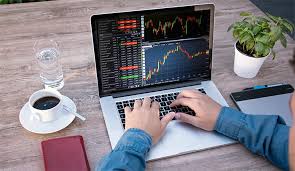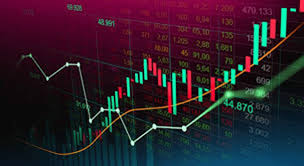
If you’re interested in honing your trading skills, forex futures trading islamic-fxtrading.com serves as an excellent resource for both beginner and experienced traders navigating the forex futures market.
Forex Futures Trading: A Comprehensive Guide
Introduction
Forex futures trading represents a crucial and dynamic aspect of the financial markets. This trading style allows investors to engage in substantial speculation, hedge against risks, and execute strategic trades that can lead to profitable outcomes. In this guide, we aim to delve into what forex futures trading entails, how to navigate this intricate market, and offer practical insights that will be beneficial for traders at all levels.
What is Forex Futures Trading?
Forex futures trading involves contracts that obligate the buyer to purchase, and the seller to sell, a specific amount of currency at a predetermined price on a specified future date. This is distinct from spot forex trading, where transactions occur immediately at the current market price.
Futures contracts serve multiple purposes, such as speculation, hedging, and risk management. Traders often engage in forex futures to lock in prices, bet on currency rate movements, or hedge existing positions in their trading portfolio.
How Forex Futures Work
The forex futures market operates through exchanges, where standardized contracts are traded. Unlike the decentralized spot forex market, the futures market provides added security and transparency due to strict regulations and oversight by governing bodies.
For instance, a trader might believe that the euro will strengthen against the US dollar by the end of three months. To profit from this potential movement, the trader could enter into a forex futures contract to buy euros at the current rate. If the rate rises at contract expiration, the trader can sell the contract for a profit. Conversely, if the currency depreciates, the trader faces losses.
Benefits of Forex Futures Trading
- Leverage: Forex futures allow traders to benefit from leverage, enabling them to control larger positions with a smaller amount of capital.
- Liquidity: The forex futures market offers high liquidity, allowing for swift executions and price adjustments without significant slippage.
- Variety of Strategies: Traders can implement various strategies, including hedging and arbitrage, depending on market conditions.
- Standardized Contracts: Futures contracts are standardized, which minimizes the complexities often associated with spot trading.
Key Terminology in Forex Futures Trading
Understanding key terms is essential for successful forex futures trading. Below are some common terms you should be familiar with:

- Contract Size: This refers to the standardized amount of currency specified in the futures contract. Most futures contracts represent 100,000 units of a currency pair.
- Margin: Margin is a deposit required to open a position in the futures market. It represents a fraction of the total position size, allowing traders to leverage their capital.
- Expiration Date: Every futures contract has a specific expiration date when it must be settled.
- Settlement: The settlement can be done in cash or through the actual delivery of the currency on the contract’s expiration date.
Strategies for Trading Forex Futures
Successful trading hinges on well-informed strategies that allow traders to navigate the market effectively. Here are a few strategies that traders often employ:
1. Trend Following
Trend following is a strategy centered on identifying and capitalizing on existing market trends. Traders employing this strategy look for identifiable uptrends or downtrends and aim to enter positions that align with these movements over a period.
2. Hedging
Hedging against potential adverse currency movements is a common and prudent strategy. Traders might use forex futures to protect existing investments or cash flows in case of unfavorable changes in exchange rates.
3. News Trading
The forex market is particularly sensitive to news and economic reports. Traders leveraging news trading focus on understanding the potential impacts of economic reports and political events, taking positions that align with their forecasts.
Risks Involved in Forex Futures Trading
Like any form of trading, forex futures come with inherent risks. Understanding these risks is crucial for traders looking to protect their investments:
- Market Risk: Price fluctuations due to economic events, geopolitical tensions, or market sentiment can lead to losses.
- Leverage Risk: While leverage can amplify gains, it equally increases potential losses, making it particularly risky for inexperienced traders.
- Liquidity Risk: In certain market conditions, the liquidity in futures markets can diminish, resulting in challenges to execute trades without impacting prices significantly.
Conclusion
Forex futures trading presents lucrative opportunities for savvy traders who understand the mechanics of the market. By mastering key concepts, employing strategic trading techniques, and remaining acutely aware of the risks involved, individuals can enhance their trading acumen. Remember, continual education and practice are vital as you embark on your forex futures trading journey.
As the financial landscape evolves, staying informed and agile will help you navigate the forex futures market successfully. Trading can offer substantial rewards, but it is crucial to approach it with a well-thought-out strategy and risk management plan.